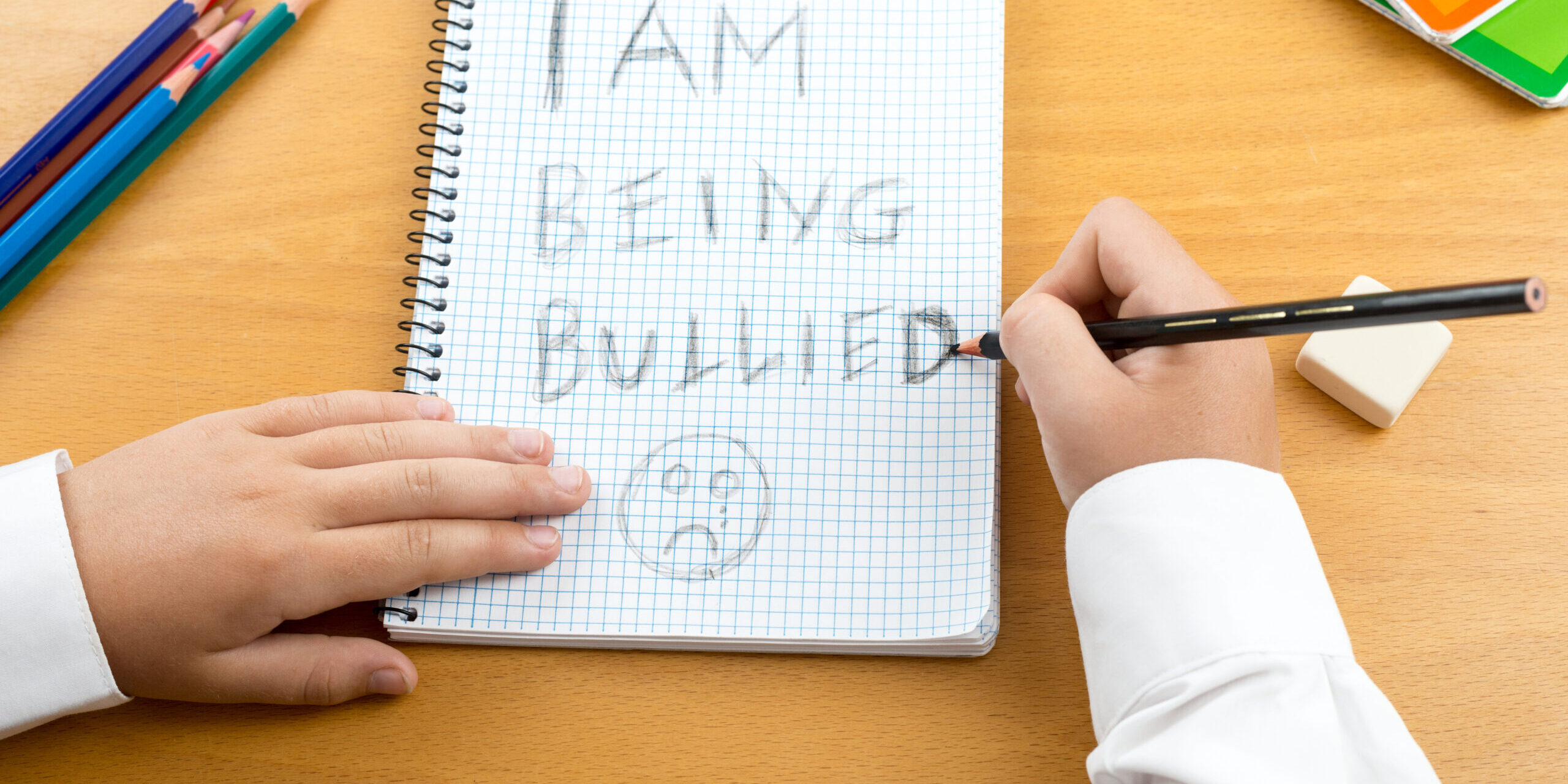Bullying can happen anywhere including at school, at home or online. Bullying is usually repeated over a long period of time and can hurt a child both physically and emotionally, even into adulthood.
Whilst it is the victim of the abuse who is most vulnerable, it is important to remember that all children who are affected by bullying can suffer harm, whether they are the one being bullied, they are the one who is bullying others, or they have witnessed acts of bullying.
In response to the need to support children and young people (and of course their care-givers) in combating bullying, the Anti-Bullying Alliance co-ordinates Anti-Bullying Week in England and Wales which this year takes place from 15 to 19 November 2021. There are lots of resources below but what do we know about bullying? In terms of the definition of bullying, the NSPCC states: ”
Bullying is behaviour that hurts someone else. It includes name calling, hitting,
pushing, spreading rumours, threatening or undermining someone.
Types of Bullying
Bullying can take different forms. It could include:
- physical bullying: hitting, slapping or pushing someone
- verbal bullying: name calling, gossiping or threatening someone
- non-verbal abuse: hand signs or text messages
- emotional abuse: threatening, intimidating or humiliating someone
- exclusion: ignoring or isolating someone
- undermining, constant criticism or spreading rumours
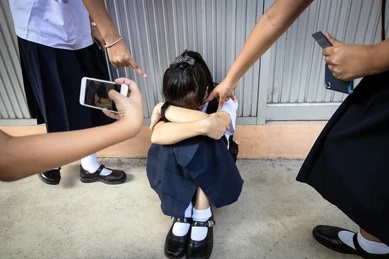
- controlling or manipulating someone
- making silent, hoax or abusive calls
The following types of bullying are also hate crime:
- racial, sexual, transphobic or homophobic bullying
- bullying someone because they have a disability
Cyberbullying can include:
- sending threatening or abusive text messages
- creating and sharing embarrassing images or videos
- trolling – the sending of menacing or upsetting messages on social networks, chat rooms or online games
- excluding children from online games, activities or friendship groups
- shaming someone online
- setting up hate sites or groups about a particular child
- encouraging young people to self-harm
- voting for or against someone in an abusive poll
- creating fake accounts, hijacking or stealing online identities to embarrass a young person or cause trouble using their name
- sending explicit messages, also known as sexting
- pressuring children into sending sexual images or engaging in sexual conversations.
(nspcc.org.uk,2021)
The theme for Anti-Bullying week 2021 is One Kind Word. This is their “call to action:
- Ask if someone’s OK. Say you’re sorry. Just say hey.
- In a world that can sometimes feel like it’s filled with negativity, one kind word can provide a moment of hope. It can be a turning point. It can change someone’s perspective. It can change their day. It can change the course of a conversation and break the cycle of bullying.
- Best of all, one kind word leads to another. Kindness fuels kindness. So from the playground to Parliament, and from our phones to our homes, together, our actions can fire a chain reaction that powers positivity.
- It starts with one kind word. It starts today”
(anti-bullyingalliance.org.uk, 2021)
Signs of Bullying
Sometimes it is not so easy to tell if a child is being bullied but “watch out for:
- belongings getting ‘lost’ or damaged
- physical injuries, such as unexplained bruises
- being afraid to go to school, being mysteriously ‘ill’ each morning, or skipping school
- not doing as well at school
- asking for, or stealing, money (to give to whoever’s bullying them)
- being nervous, losing confidence, or becoming distressed and withdrawn
- problems with eating or sleeping
- bullying others
Effects of Bullying
The effects of bullying can last into adulthood. At its worst, bullying has driven children and young people to self-harm and even suicide.
Children who are bullied:
- may develop mental health problems like depression and anxiety
- have fewer friendships
- aren’t accepted by their peers
- are wary and suspicious of others
- have problems adjusting to school, and don’t do as well
(nspcc.org.uk,2021)
Sadly, some fostered children experience bullying just because that are in foster care. Hopefully, we can all take time this week to talk to our young people about connecting with others in a kind and positive way. Perhaps create some time and space for a discussion with your young person to see if they are worried about bullying that they have experienced or are witnessing, or they are concerned about their own behaviour as a bully.
Resources
Books
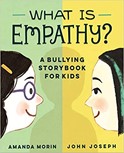 What Is Empathy?: A Bullying Storybook For Kids
What Is Empathy?: A Bullying Storybook For Kids
By Amanda Morin
Teach children ages 5 to 7 about empathy and putting themselves in someone else’s shoes. In this entry into bullying books for kids, they’ll read about how best friends Ava and Sofia handle a problem with bullying.
The story is told twice-first from Sofia’s point of view, and then from Ava’s, so kids can experience how their feelings change when they see things from a different perspective. When it comes to bullying books for kids, this one stands out:
- Everyone deserves understanding -No matter how your child is experiencing bullying, Ava’s and Sofia’s stories will show them skills that can help.
- Talk about it -Go beyond other bullying books for kids with discussion questions that encourage kids to think about why the characters might have done the things they did.
- Beautiful illustrations -Colourful artwork brings the story to life and makes this book fun to read.
Give kids the tools to practice kindness with What is Empathy?, everything that bullying books for kids should be.
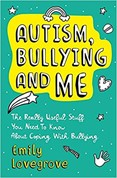 Autism, Bullying and Me: The Really Useful Stuff You Need to Know About Coping Brilliantly with Bullying
Autism, Bullying and Me: The Really Useful Stuff You Need to Know About Coping Brilliantly with Bullying
By Emily Lovegrove
This accessible guide for autistic children and teens is full of advice for coping successfully with bullying. It helps the reader understand what bullying is and debunks myths such as ‘bullying makes you stronger’. It also lays out self-empowering strategies and practical tips on how to deal with situations where they are being bullied.
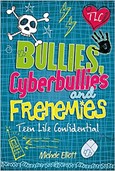 Bullies, Cyberbullies and Frenemies (Teen Life Confidential)
Bullies, Cyberbullies and Frenemies (Teen Life Confidential)
By Michele Elliott
Friendships and peer relationships are one of the most difficult things about being a teen. Many face bullying of some kind or another, whether in person or on the Internet or social media. Written by Kidscape founder Michele Elliott, Teen Life Confidential: Bullies, Cyberbullies and Frenemies is a friendly, kind and practical guide to navigating these tricky relationships, and beating the bullies. Are there practical things you can do to stop being bullied – at home, at school and online? What are frenemies and how can you deal with them? How can you learn to make friends and respect yourself? If you’re a bully, how can you change your behaviour? This brilliant book will tell you what bullying is, where it happens and what you can do about it, as well as how to assert yourself and develop your self-esteem. Advice is supported by quotes from teenagers, who share their own experiences, and will help to make readers feel they’re not alone.
(reviews by Amazon.co.uk)
Videos
https://www.youtube.com/watch?v=NAwkckpkapA Banter or Bullying?
https://www.youtube.com/watch?v=LNlossp26ZA Am I A Bully?
https://www.youtube.com/watch?v=0Dq4BB5K4RE Reasons Why People Bully
Online Resources
https://anti-bullyingalliance.org.uk/sites/default/files/uploads/attachments/Anti-Bullying%20Week%202021%20-%20Parent%20Pack%20-%20FINAL.pdf A Tool For Parents And Carers
https://anti-bullyingalliance.org.uk/sites/default/files/uploads/attachments/Anti-Bullying%20Week%202021%20-%20Social%20Media%20Toolkit%20-%20FINAL_3.pdf Social Media Toolkit
https://www.amightygirl.com/blog?p=20215 A Mighty Girl website – Rude, Mean, or Bullying?
A Child Therapist Defines the Differences
Sources
https://www.nspcc.org.uk/what-is-child-abuse/types-of-abuse/bullying-and-cyberbullying/ NSPCC – Bullying and Cyberbullying
https://anti-bullyingalliance.org.uk/anti-bullying-week Anti-Bullying Alliance – Anti-Bullying Week
by Lynsey Dobbs – Senior Recruitment Officer, UK Fostering
